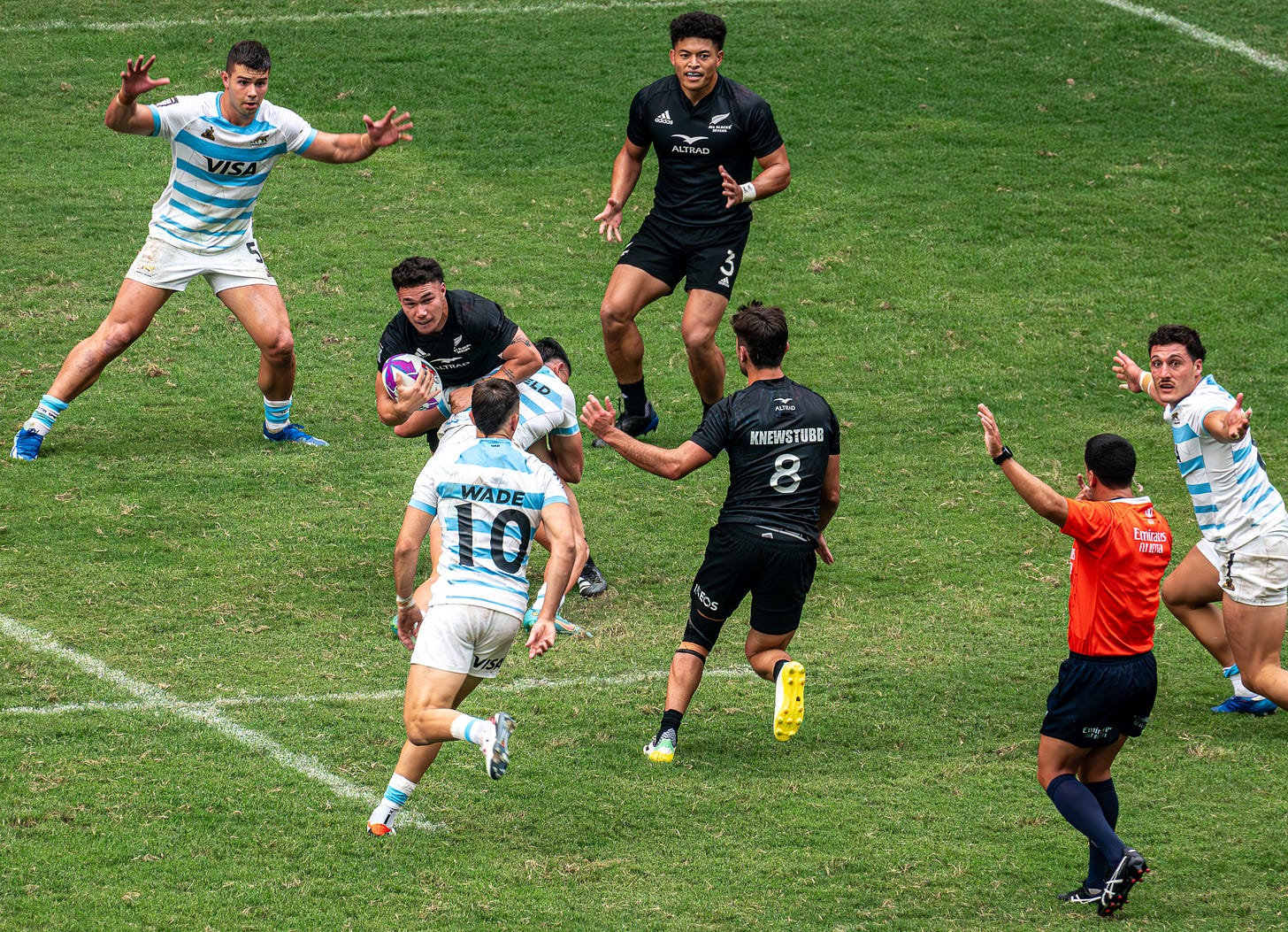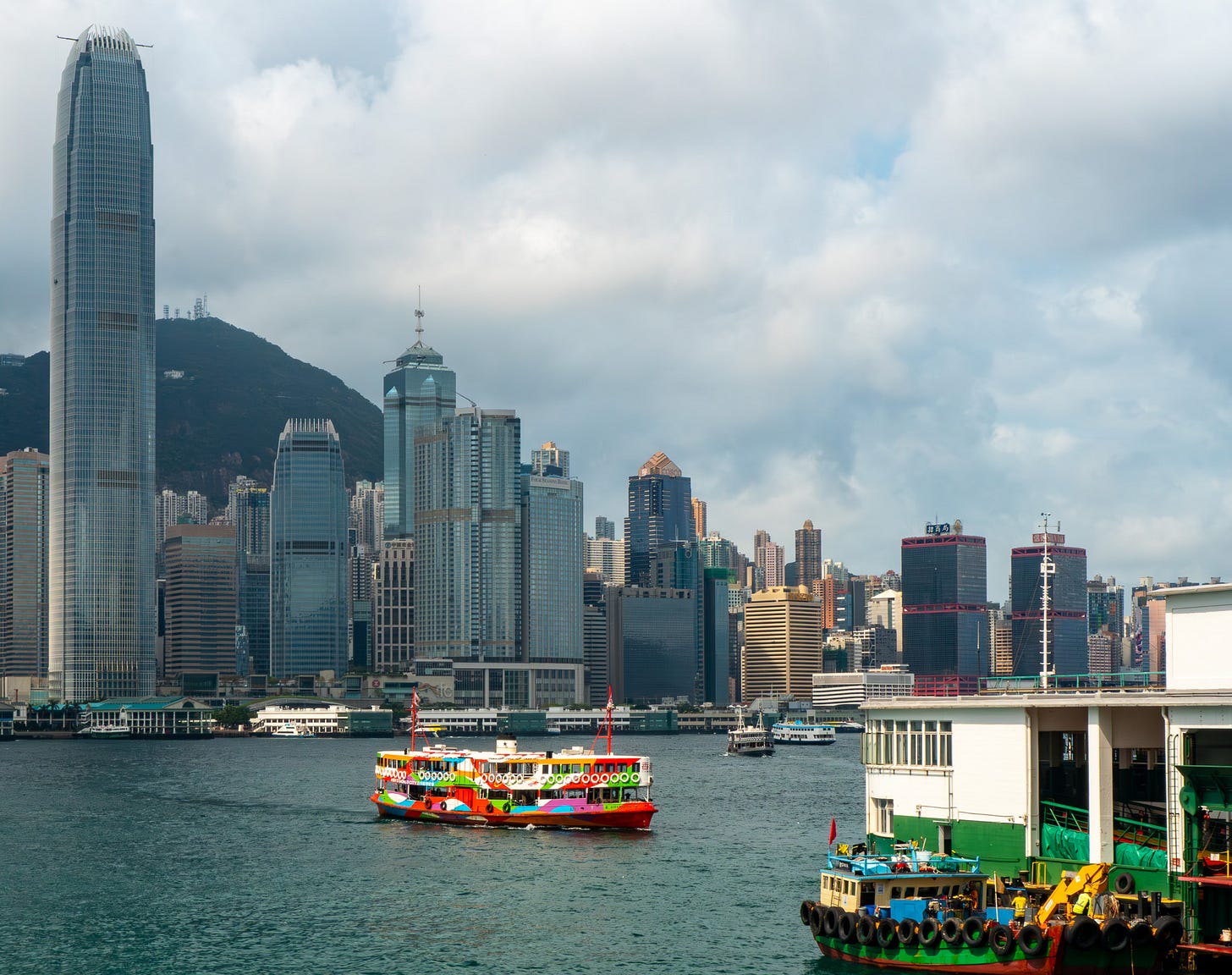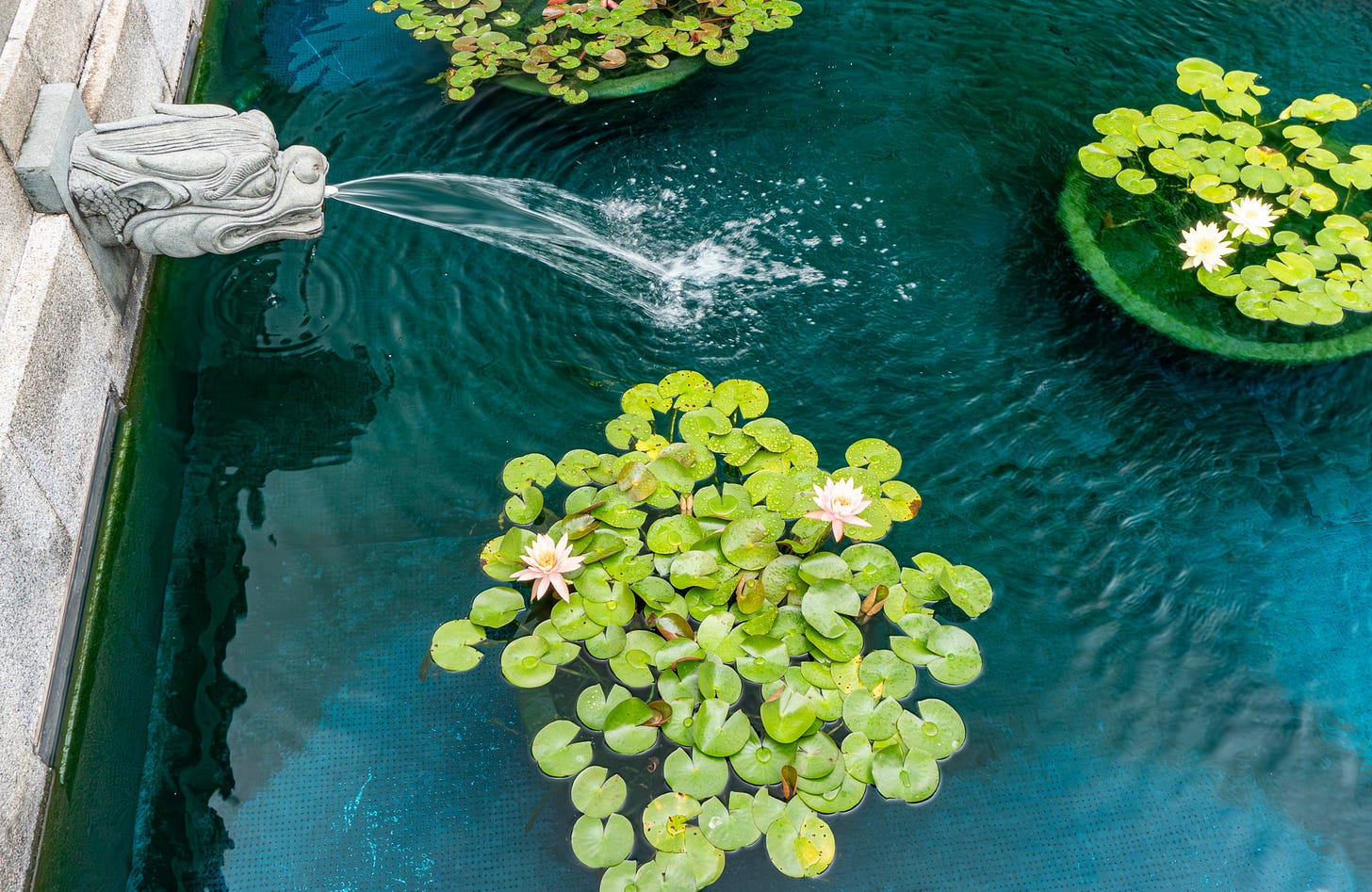Hong Kong
It's the subtle things
The only previous time I have been in Hong Kong was in 1999, also visiting my brother and his wife who live here.
It was less than two years after the “handover” of Hong Kong from Britain to China and perhaps the most remarkable thing to my eyes was how little evidence there was of the change.
It was the furiously busy money-making city of its reputation. The streets were thronging. People revelled in tales of a thirty storey building being knocked down to make room for a sixty storey one. From a Canadian perspective, the city was ultra-modern at its core while retaining a flavour of the developing world ringed around it.
The only visible sign of the handover was when you were walking through Central, as the business district is called, and peeked into what was still known at the time, funnily enough, as the Prince of Wales Barracks. There, the startling and incongruous sight of the drab green uniforms with red lapels of soldiers from the People’s Liberation Army. It seemed like a little rent in the universe, a wormhole into a different place and time.
I happened to arrive in Hong Kong this time, a quarter century later, on the very week that the city adopted a new security law targeted at crimes such as treason, insurrection, external interference, and espionage. It is part of a rolling crackdown following the democracy protests that roiled the city in 2019 and 2020.
My brother and I had lunch at the famous Foreign Correspondents’ Club the other day, but the truth is that Hong Kong is no longer the freewheeling hub for media in the region it once was. Foreign news organizations, including the New York Times, have upped stakes for South Korea, Singapore or Taiwan.
The outspokenly anti-communist local website, Apple News, has been shut down and its owner, Jimmy Lai, is in prison. By all accounts, remaining local news outlets are now, shall we say, circumspect.
To a visitor like me, none of this is readily visible on the surface.
My brother says the streets are not quite as busy as they once were. Property prices have come off their peak, but this remains the most expensive city in the world if you exclude Monaco which, let’s face it, is barely even a real place. Hong Kong is home to seven and a half million people.
I walked up Hong Kong’s famous Victoria Peak, overlooking Central, just a few hours before writing this post, and when you look below, you see the accumulated wealth of an incredible half century.
But the city is changing and it is changing as a matter of policy in Beijing.
China has gradually built up cities on the mainland, such as nearby Shenzhen as well as Shanghai, to perform some of Hong Kong’s critical functions as a financial capital and entrepôt that lubricated trade between China and the rest of the world.
And China has insinuated itself into Hong Kong not only with security laws but with more subtle cultural power.
When my wife Suzanne and I visited in 1999, we were struck by how tentative the attachment to the city was among many of the residents we met. Even those born here had parents who had come from the mainland.
The city’s population exploded only after the Second World War as people sought refuge from the civil war between the nationalists and the communists on the mainland. Since 1945, the city has grown twelvefold.

On that previous visit, it seemed obvious that people were mainly here to work hard and make money. There was very little interest in the history of the place or even a deep attachment to it. Many of the people we met had obtained foreign passports that would allow them to get away when the good times ceased to roll.
Suzanne and I looked for a museum or an exhibit to tell us about the city’s past and all we could find was a small exhibit of blueprints for British colonial buildings that had been knocked down to make way for the soaring business towers.
But in 2022, the city opened a setpiece historical institution: the Palace Museum. It got its name not because it is housed in a palace but because its main function is to exhibit artefacts from the museum of the same name in the Forbidden City in Beijing.
The plan to build the museum was announced in 2016 by the Beijing-appointed chief executive of the city, Carrie Lam, without consultation. That drew outrage in some quarters, but a leading supporter (Wikipedia informs me) said the absence of consultation was so that the government could give the people of Hong Kong a nice surprise!
When we visited the museum there was a wonderful exhibition about a Qing dynasty palace and garden in Beijing. The objects were beautiful, but the patriotic nationalist message was not hard to discern. The palace and gardens were destroyed by the British and French in the Second Opium War.
Interestingly, this exhibit from Beijing seemed to be attracting mainly tourists from the mainland the day we visited.
There were plenty of Hong Kong people at the museum at the time. But they voted with their feet by cramming into a smaller exhibit called “Botticelli to Van Gogh”, a collection of European paintings from London’s National Gallery.

This weird tension between the increasingly insistent official culture and popular sentiment was also noticeable when we attended the city’s famed Hong Kong Sevens rugby tournament the other day.

A set piece on the afternoon when we were there was a pair of games (women’s and men’s) between “Hong Kong, China” as the announcer called it, and regular old “China”.
It was hard not to read at least a little politics into the intensity with which the crowd rhythmically chanted “Hong Kong! Hong Kong!” during the two matches, which both went to the home side. Note: absolutely no one was chanting “Hong Kong, China”.









Great piece - have to admit I find the end of the British Empire fascinating and the handover of Hong Kong is, as much as any event, the definitive final curtain.
I was in HK in 1982 when Argentina invaded the Falklands. This was 2 years before the handover agreement and the future of HK was not really in doubt, but nor was it exactly clear what would happen. When Thatcher had the Royal Navy steam off to the Falklands, there were a lot of questions in HK on whether this foreshadowed future events in HK. It seems however that Britain never really questioned that HK must ultimately be handed back to China, whereas they claimed there was no one to hand Falklands back to. One wonders therefore how they justify not handing back Gibralter.